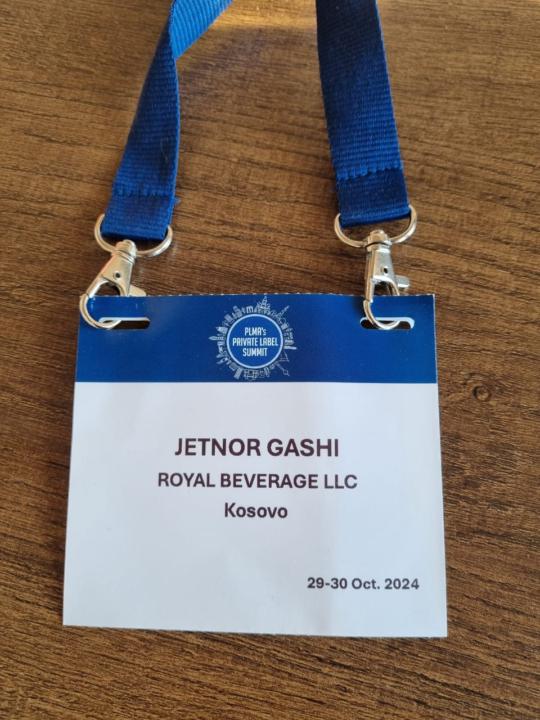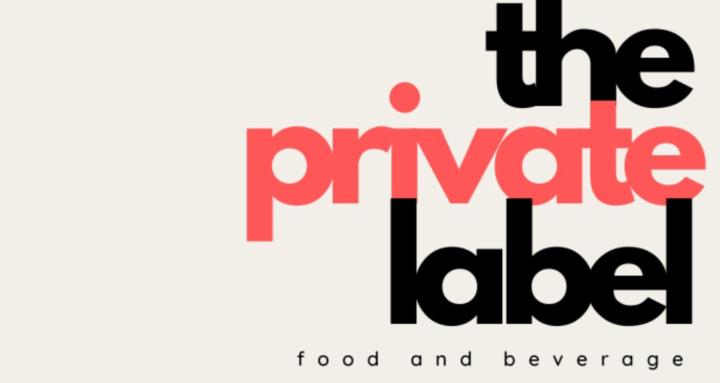
Write something
Private Labels: The Rise to A-Brand Status – Insights from PLMA Milan
Attending the PLMA’s Annual Private Label Summit in Milan last year was an eye-opening experience. Over the course of two days, some of the biggest names in retail, design, and packaging gathered to discuss the evolving role of private labels. Among the key participants were representatives from Rossmann, Coop Italian Food, and leading design firms, all bringing valuable insights into how private labels are no longer just budget alternatives but real contenders in the branding space. The central theme of the event was "Transforming Private Labels into Powerful Brands", a discussion that resonated across panels and keynotes. One of the biggest takeaways? The industry now recognizes that private labels can compete with, and even surpass, traditional A-brands. Key Speakers & Insights - Michaela Jay (IGD, Insights Manager) – Shared best practices on how private labels can elevate themselves to brand status through strategic positioning. - Sandra Lorenz (Private Label Director, Rossmann) – Provided a retailer’s perspective on the evolution of private labels, especially in the German market. - Paolo Bonsignore (COO, Coop Italian Food) – Presented a revolutionary approach to private label branding in Italy, where these products are becoming consumer favorites. - Jens Sievert (Director of International Design & Branding, Daymon Design) – Led discussions on how human-centered design plays a crucial role in making private labels stand out, proving that branding and storytelling are just as important as product quality. Private Labels as A-Brands: The Game-Changers A key argument that emerged throughout the summit was how retail giants like Coop and Rossmann have successfully elevated their private label offerings into powerful, market-leading brands. Once perceived as lower-cost alternatives, these private labels now compete directly with well-established national brands, offering high-quality products, strong branding, and deep customer trust. Coop’s Revolutionary Private Label Strategy
0
0

Who is Peter Rahal? Founder of RXBar and David Protein Bar
The Early Days: Building RXBAR Peter Rahal is a visionary entrepreneur best known for co-founding RXBAR, one of the most successful protein bar brands in recent years. The story of RXBAR began in 2013 when Rahal and his co-founder, Jared Smith, started making protein bars in Rahal’s parents' kitchen in Chicago. Their goal was to create a clean-label protein bar—one made with simple, whole ingredients that consumers could trust. The result was RXBAR, a minimalist brand that proudly listed its key ingredients (like egg whites, nuts, and dates) on the front of the packaging. Instead of raising outside capital, Rahal and Smith grew the business through direct-to-consumer sales and grassroots marketing. They targeted CrossFit gyms, fitness enthusiasts, and health-conscious consumers, leveraging social media and word-of-mouth to build momentum. The $600 Million Exit RXBAR’s growth was nothing short of explosive. By 2017, the company had reached $130 million in annual revenue, drawing interest from major food corporations. That same year, Kellogg’s acquired RXBAR for $600 million, allowing Rahal to cash out while continuing to work on the brand post-acquisition. However, as with many entrepreneurs who sell their startups to large corporations, Rahal eventually stepped away from the brand to pursue new ventures. David Protein: The Next Generation of Protein Bars After RXBAR, Rahal didn’t stop innovating. He co-founded David Protein, a high-protein, low-calorie bar brand designed for the modern consumer. David Protein is marketed as a protein bar for people using GLP-1 weight-loss medications like Ozempic and Wegovy. These medications reduce appetite, so the bars are positioned as a way to help users maintain muscle mass while consuming fewer calories. What Makes David Bars Different? - 28g of protein per bar - Only 150 calories - Zero sugar (sweetened with stevia and monk fruit) - Protein from whey isolate, collagen, and egg whites David Bars have gained attention for their lean macros, making them a favorite among fitness-conscious consumers and those looking for high-protein, low-calorie snacks.
Sustainability and Innovation: The Future of Beverage Packaging
In today’s world, sustainability is more than a buzzword—it’s at the forefront of the beverage industry. Brands are embracing eco-friendly packaging and innovative solutions that satisfy both consumer needs and environmental responsibility. Take Karma Water, for example. Their patented cap technology stores probiotics, which are released into the water only when the cap is pressed. This design eliminates preservatives, keeping the product fresh and sustainable. Karma Water’s innovation exemplifies how sustainability and creativity can be combined to enhance the consumer experience. In the craft beer scene, Fort George Brewey and Public House wery in Astoria, Oregon, takes a unique approach. Their brewery is powered entirely by solar energy, and they focus on energy-efficient packaging that reduces waste while crafting premium brews. Their efforts show that even small businesses can make a meaningful impact on sustainability. For global giants like PepsiCo and Coca-Cola, sustainability is embedded in their strategic vision. PepsiCo’s Drinkfinity platform encourages refills with reusable pods, significantly reducing single-use plastic waste. Coca-Cola, with its goal to transition to 100% recyclable bottles and renewable energy for production, showcases how even the largest companies can lead by example. Nestlé Waters has also jumped on the sustainability bandwagon, with initiatives like the "Natural Hydration Council" and efforts to make mineral water bottles entirely from 100% recycled plastic. This commitment reflects the growing demand for brands to innovate, while prioritizing eco-friendly solutions. Another crucial milestone in the beverage industry is the EU’s rPET mandate. As of 2021, all beverage bottles in the EU must contain at least 25% recycled plastic (rPET). By 2030, this requirement will increase to 30%. For non-EU producers, this regulation poses both a challenge and an opportunity.
0
0
Why Beverage Giants Are Focusing More on Acquisitions Than Innovation: A Shift in Strategy?
In recent years, the beverage industry has seen a significant shift in strategy. Traditionally, major players like Coca-Cola Bottling Company UNITED, Inc. and International Refreshments Company LTD. (PEPSICO) have focused on new product innovations, such as introducing new flavors or entirely new products, to drive growth. However, a noticeable trend has emerged: these beverage giants are increasingly turning to acquisitions of smaller, high-growth brands rather than expanding their existing portfolios with new flavors or products. Acquisitions Becoming the Focus This trend toward acquisitions is particularly evident with Coca-Cola and PepsiCo, who have made several high-profile acquisitions in the past few years. Coca-Cola has acquired beverage brands like Fairlife, a dairy-based drink, and BodyArmor, a sports drink company. Similarly, PepsiCo has expanded its reach by acquiring brands such as SodaStream, Bubly, and Core Water. These acquisitions allow the giants to tap into emerging consumer trends such as healthier beverages and sustainability, rather than focusing solely on innovation within their traditional portfolios. Bodyarmor flavors For example, Coca-Cola and PepsiCo have both invested heavily in functional beverages – drinks that provide health benefits beyond basic hydration. The market for such beverages has been growing rapidly as consumers become more health-conscious. This marks a shift in priorities for beverage companies, who are looking to not only expand but to align with consumer trends that are expected to dominate the future. Functional Beverages and Health Trends One of the most prominent examples of this shift is the rise of brands like POPPI and OLIPOP. These emerging brands have successfully combined flavor with functionality, offering beverages that support gut health, digestion, and overall wellness. POPPI’s sparkling prebiotic soda made with apple cider vinegar offers a refreshing and health-conscious alternative to traditional sugary sodas. Similarly, OLIPOP has revolutionized the soda market by combining prebiotics, fiber, and plant-based ingredients to create a functional soda that’s both healthy and flavorful.
0
0
1-4 of 4

skool.com/the-private-label-community-9090
Welcome to the Private Label Mastery Community, your go-to hub for mastering the art of private label branding, sourcing, and scaling.
Powered by


